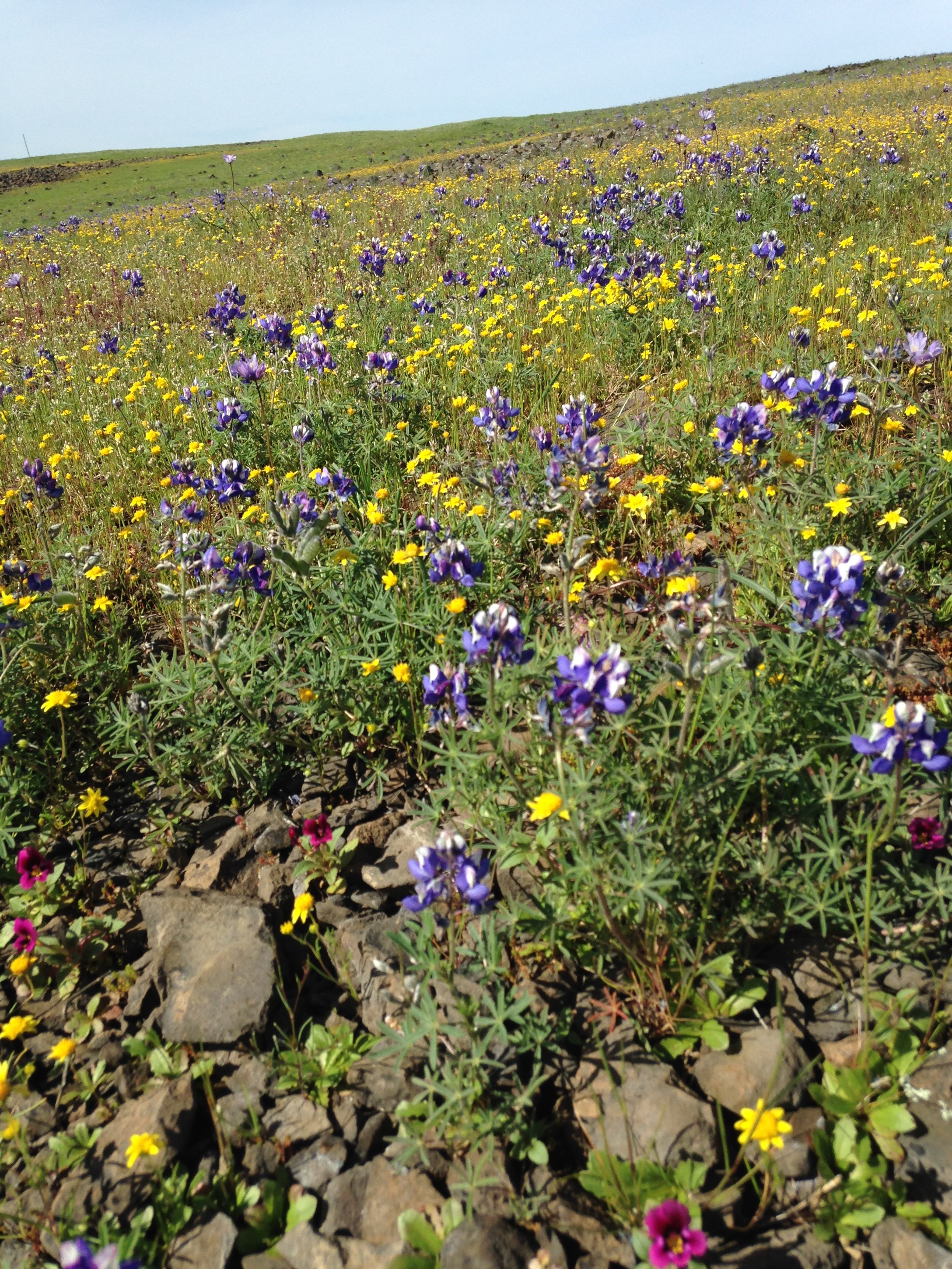
10 Daily Practices That Are Helping Me to Stay Grounded
As I’ve talked with friends, family, and those we are caring for in this season, I’ve realized that we’re all making some unique discoveries about ourselves, our faith, and our priorities in these uncertain times.
Working from home or being laid off, trying to give our kids structure and at-home education, making more meals at home and getting creative with what we have available, college kids having to come home to finish their semester online, sanitizing and hand-washing, working essential jobs that place us in harm’s way, new grocery store protocol, stressing about loved ones getting sick or fears about our national and global economy have forced us to redefine our day-to-day.
But we’ve also had to confront grief, anxiety, trauma, fear, loneliness, and lack of resources. Our sense of security and control (most of which has been false all along…) has been shaken, shattered, and scattered.
That’s a lot to process, adjust to, and hold, friends.

Prayers for Anxious Yet Hopeful Hearts
Hey, friends.
What a week the world has been through. As we wrestle with feelings of overwhelm and cling to hope, we wanted to share a few prayers that have brought us comfort and peace over the last few days. Pray them when you feel anxious, pray them when you're moved to intercede, pray them alone or with those closest to you--and all the while, know that we are praying that the peace of the Lord Jesus will guard your hearts and minds (and bodies, too!).

Resources for This Lenten Season
Tomorrow is Ash Wednesday, which marks the start of Lent. Ash Wednesday reminds us of our sinfulness and our frailty, but more than that, Ash Wednesday and Lent remind us of God’s goodness and faithfulness. Only when we reflect on our full humanity, do we fully realize who God is and who God made us to be through the death and resurrection of Jesus Christ. It’s through this season of reflection that we recognize the magnitude and magnificence of God’s great love for us.
This season serves as a disorienting rhythm. Lent invites us into something different from the rest of the year.

Defining Spiritual Formation, Spiritual Disciplines, and Spiritual Direction
Spiritual formation. Spiritual direction. Spiritual disciplines.
These are terms we often use at CURATE, because we are, after all, a spiritual formation and soul care ministry. But we’ve been asked some version of these questions fairly often:
“So....what exactly is spiritual formation? And what’s spiritual direction? And what to you mean by spiritual practices and spiritual disciplines?”
Not only are we asked these questions, but we’ve also noticed that some folks use these terms interchangeably, because they are so very similar and are intertwined with one another when it comes to who we are becoming as people of faith. While related to one another, these three terms are distinct.

Retreat, Part 1: Why Getting Away is So Good for Your Soul
I love retreats.
As a former Young Life staffer, some of my favorite memories are from staff or leader retreats at Crooked Creek or Frontier Ranch, women’s retreats at Trail West Lodge, or from church women’s retreats I’ve been a part of over many years. Most of these retreats, though, are packed full of content, meetings, listening to speakers, lots of conversation, playing games, and squeezing in a nap in the afternoon, if I’m lucky.
What I really long for on retreat, though, is what Jesus invites his disciples into in Mark 6:30-32, right after they’d been sent out to do ministry (and just before the feeding of the 5,000):
“The apostles returned to Jesus from their ministry tour and told him all they had done and taught. Then Jesus said, ‘Let’s go off by ourselves to a quiet place and rest awhile.’ He said this because there were so many people coming and going that Jesus and his apostles didn’t even have time to eat. So they left by boat to a quiet place, where they could be alone.”
Right in the middle of their busy lives and work and to-do’s, Jesus invites them to come away and rest awhile, even as crowds are following them. He gives them permission to step away, to retreat from the soul-weary battles of ministry, and rest with him.

Silence and Solitude: A Practice to Try in the New Year
Truthfully, I used to think of silence and solitude as practices for refreshment, renewal, and getting away from people and set aside responsibilities. But they are not designed to make me feel rested. They’re designed to strip away all the distractions, let me see myself clearly, and allow me to hear the voice of God. Nouwen calls silence and solitude “the furnace of transformation” (The Way of the Heart, p. 13). Deliberately placing myself into a furnace sounds like the very opposite of restful.
But friends, I am in need of practicing silence and solitude myself right now. Desperately. (I think that’s the real reason why I’ve procrastinated writing this post…) I can feel in my soul a deep, deep longing to get away from noise, words, instagram posts, unsettling news stories, the world telling me what I should want and have and do. To instead be so satisfied with the quiet presence of God that words are unnecessary. There’s a quote from Spurgeon that has been playing in my head the last few days, in which he says that “contemplation, still worship, unuttered rapture, these are mine when my best jewels are before me. Brethren, rob not your heart of the deep sea joys; miss not the far-down life.”
Rob not our hearts of the deep sea joys.
Miss not the far-down life.
So, let’s plumb the depths and learn this far-down life together, shall we?

Praying Scripture: The Time-Tested Practice of Lectio Divina
The Psalmist declared to have hidden the word in his heart, and that it was “sweeter than honey” (Ps. 119:11, 103), and Paul encouraged us in Colossians 3:16 to “let the word of Christ dwell in you richly.” I’ve never found a practice of reading scripture that invites me to do the same quite like lectio divina!
I was first introduced to this ancient practice while on staff with Young Life, when Bob and Claudia Mitchell led us through it at a staff retreat a decade ago. Their love for the words of Scripture were only unmatched for their love for the God these words revealed, and I was captivated. I wanted to know the heart of Jesus the way that they did, and so began my journey with lectio divina.

How to Pray the Psalms
For some people, the Psalms are a part of scripture that have always felt like home, but for others, it takes a while to get into them. I was in the latter camp. The pathway to spiritual growth in the Psalms isn’t as clear-cut or pragmatic as places of didactic teaching, encouragement, or commands in other parts of scripture.
Donald Miller opened Blue Like Jazz with, “Sometimes you have to watch somebody love something before you can love it yourself. It is as if they are showing you the way” (pg. ix). This was my experience.

The Poetry of Praise
The Psalmist declared to have hidden the word in his heart, and that it was “sweeter than honey” (Ps. 119:11, 103), and Paul encouraged us in Colossians 3:16 to “let the word of Christ dwell in you richly.” I’ve never As I began to work on this post, I intended to write a very academic post about Psalms of praise—but I find I’m reflecting more on how the Psalms have taught me to worship. It’s easy to categorize the Psalms into individual and communal laments, individual and communal praises, etc, but truthfully, each psalm contains elements of both. Lament and praise go hand in hand. They are two sides of the same coin, in a kind of rhythm with one another, often experienced simultaneously, and they are both worshipful. They both bring glory to God.

The Earthiness and Wonder of Lament
Truthfully, this post has been in my thoughts for weeks, but the discipline to sit down and actually WRITE about lament has been lacking. I’d like to blame it on the recent power outages here in Northern California (we had FOUR of them, three of which were back-to-back, for a grand total of 9 days without power in the month of October!), or even the very busy season of life and ministry that we’re in this fall. But really, it’s because I’d rather remain distracted than acknowledge the need for lament, even in my own life. It’s so deeply personal, and all too real.
As a culture, we can be quite averse to lamenting. When someone expresses their sorrow or pain or doubt, we can be quick to offer cliche responses like, “Things will get better." "You’ll look back on this years from now and be grateful, because everything happens for a reason.” “God doesn’t give us more than we can handle.” (I literally cringed as I typed that last one.) Though co-lamenting seems the natural response, most often I give in to the temptation to circumvent or minimize it, as though I have to immediately come to the conclusion that God will somehow make something sweet out of bitter circumstances. I can have such a hard time sitting with another person in their pain that it’s no wonder I’d rather avoid or narcotize my own!
